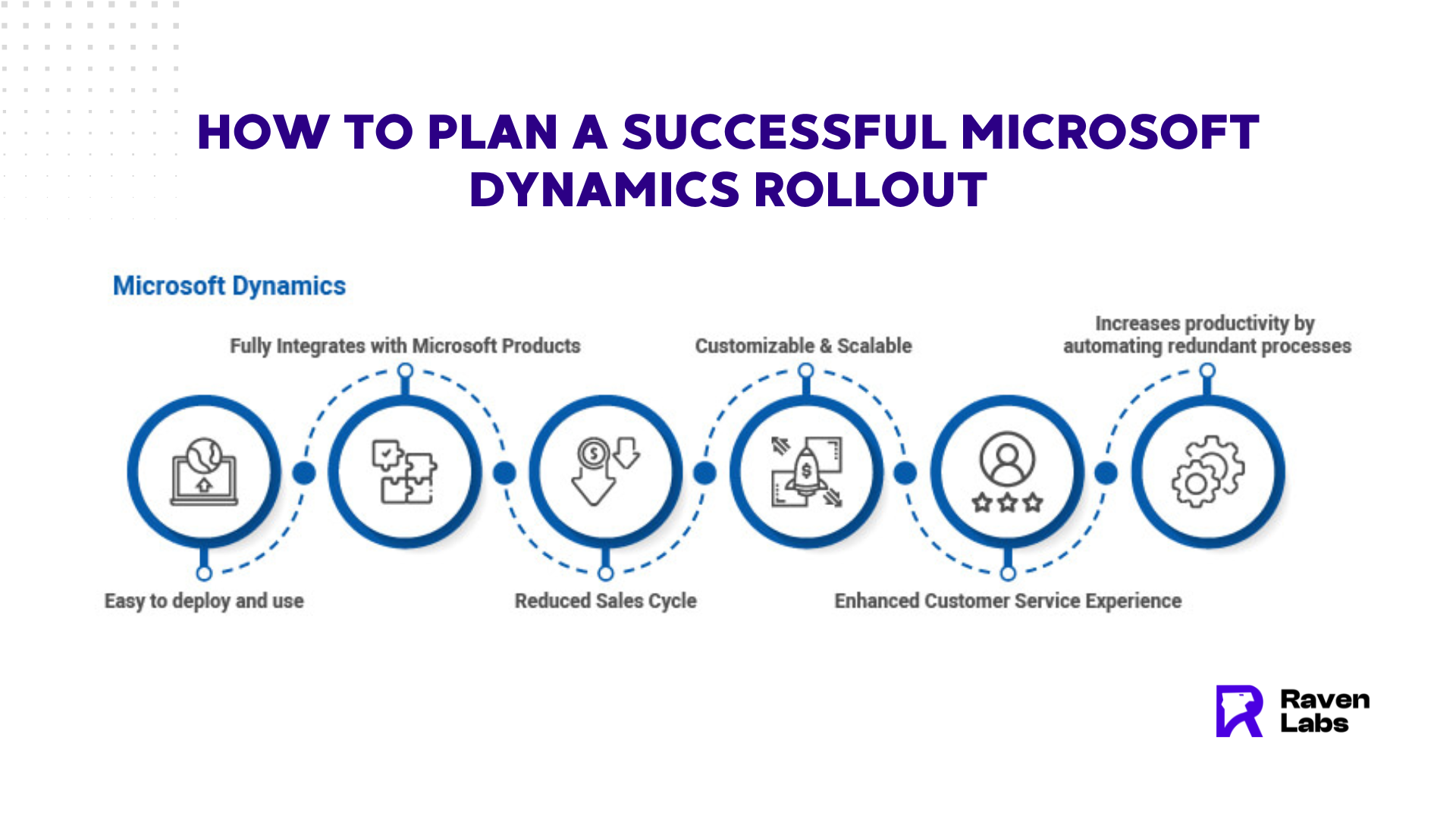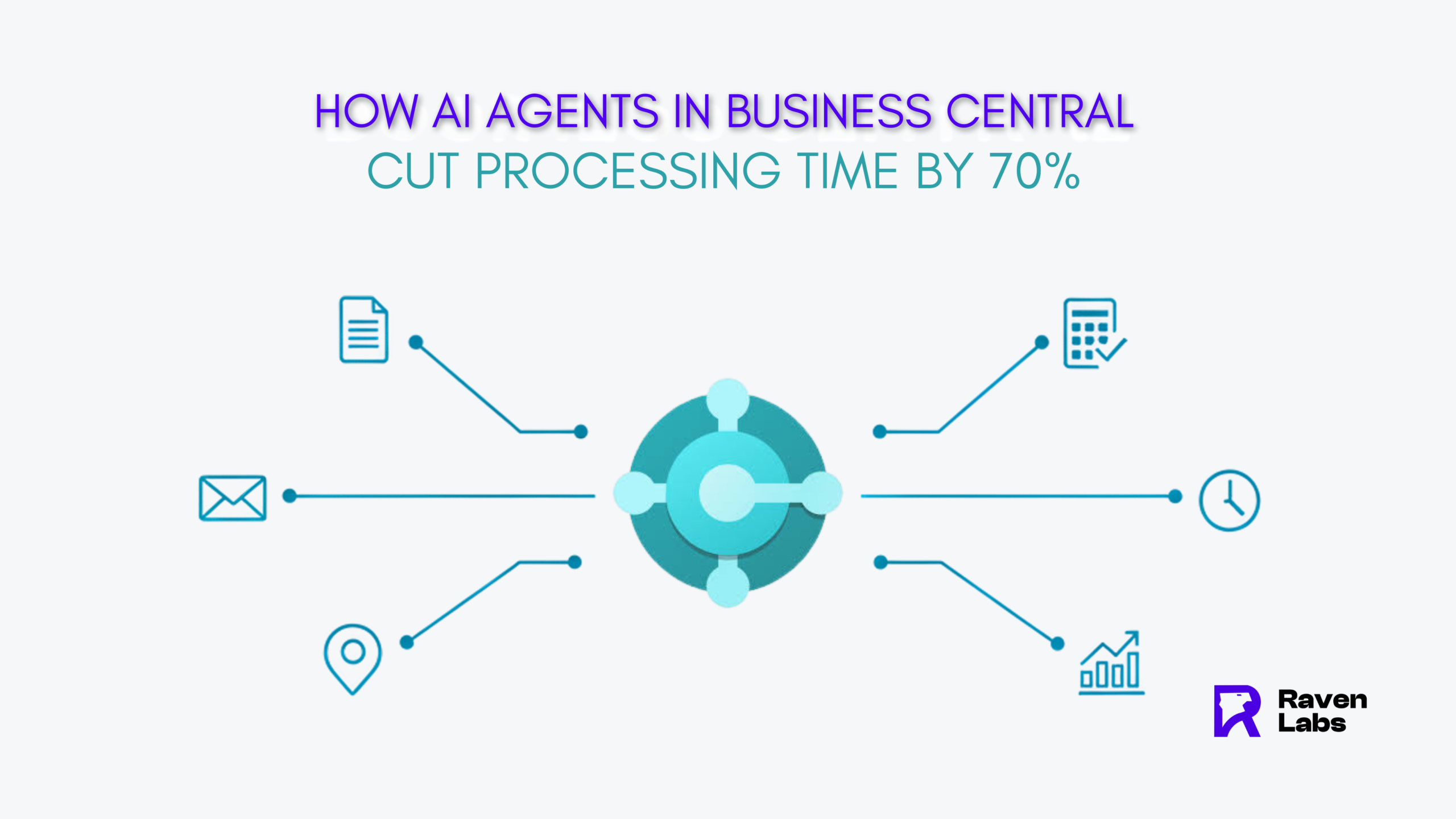
Microsoft Dynamics implementations fail frequently, even though the platform offers a powerful integrated suite of over 15 applications. Many organizations find it difficult to realize the full potential of this complete system that brings together both ERP and CRM functionalities. As a result, businesses often turn to managed services for support in implementing and maintaining these complex systems. IT managed service providers in Melbourne and other locations can play a crucial role in ensuring successful Microsoft Dynamics deployments and ongoing support.
MS Dynamics offers high customization options and streamlined operations, yet businesses face major implementation hurdles. Over the last several years since its 2016 release, Microsoft Business Central and other ecosystem modules have grown substantially. Companies that haven’t updated their systems since 2018 face integration challenges. The switch from older systems to Business Central becomes tricky because of shifting license models and complex integration needs with Office 365, Microsoft 365, and Power BI. This is where managed IT services near me can provide valuable expertise and support.
Let’s delve into the typical reasons behind Microsoft Dynamics implementation failures and show you practical ways to avoid these setbacks. Our explanation will help you direct your project successfully and boost your return on investment, whether you’re starting fresh or fixing an existing implementation. This knowledge is crucial for businesses considering managed IT solutions or seeking IT support for their digital transformation journey.
Common Reasons Microsoft Dynamics Implementations Fail
Research shows that 99% of large projects fail somehow by missing deadlines, going over budget, or not delivering expected benefits. Microsoft Dynamics implementations show similar patterns, with 75% not meeting expectations. Here are the most common reasons behind these failures, which highlight the importance of proper IT strategy and managed services.
Lack of clear business goals
Microsoft Dynamics implementations often drift into confusion and scope creep without well-defined objectives. Many organizations jump into implementation before understanding their needs, which creates problems down the line. The gap between technology solutions and business requirements produces projects that hit technical marks but miss expected outcomes. Organizations need a detailed IT roadmap that connects implementation efforts to measurable business goals. Managed service providers in Melbourne can help develop these roadmaps and ensure alignment with business objectives.
Underestimating project complexity
Businesses often misjudge the resources needed for successful Microsoft Dynamics rollouts. The platform’s sophisticated architecture needs expert guidance, yet many companies try to handle projects without proper IT consulting expertise. About 50% of ERP implementations fail on their first attempt because they lack testing and process re-engineering. Short implementation timelines mean teams overlook critical issues during development, emphasizing the need for comprehensive IT project management. Managed IT Melbourne services can provide the necessary expertise and resources to navigate this complexity.
Poor user adoption and training
User adoption remains the biggest problem that makes CRM initiatives fail. Nearly half of new projects don’t meet expectations in their first year. Employees revert to old habits when they don’t know how to use Business Central or other Microsoft Dynamics modules. Studies from Prosci reveal that projects with planned change management are six times more likely to succeed than those without it. The core team only uses 40% of available software features, which shows why detailed training matters. This is where managed IT support can play a crucial role in ensuring smooth adoption and providing ongoing IT helpdesk services.
Inadequate data migration planning
Data migration takes up 25-35% of implementation time, yet many organizations treat it as an afterthought. Teams face pressure as deadlines approach when data migration starts too late. Common challenges include:
- Data duplication and inconsistent formatting
- Incompatible data structures between legacy systems and Microsoft Dynamics
- Security concerns during transfer of sensitive information
Serious operational issues can emerge without proper data validation before migration. These issues include payment processing failures and inaccurate financial reporting. Managed services can provide expertise in data protection and cyber security to mitigate these risks. Additionally, IT service providers in Melbourne can offer specialized knowledge in secure data migration practices and vulnerability assessment.
Key Modules That Often Face Implementation Challenges
Microsoft Dynamics projects face common challenges, but some modules create specific implementation hurdles. Teams should think about these module-specific obstacles to prepare better for their digital transformation experience.
Finance and Operations
Technical complexity and resource needs often slow down Microsoft Dynamics 365 Finance and Operations implementations. Many companies see F&O as just a tech project instead of a chance to get into their business models and processes. The biggest problems include:
- Too many customizations that make the system complex
- Bad project planning and management
- Not enough configuration testing
Companies that use wrong environments run into performance problems. Microsoft warns that Tier-1 environments run too slowly for production workloads. About 44% of deployments struggle because workers need individual-specific experiences and workflows. This is where managed IT services Melbourne providers can offer valuable insights and support, especially in optimizing IT infrastructure for better performance.
Sales and Customer Engagement
The Customer Engagement world has altered the map, which creates confusion during implementation. Microsoft stopped offering the Dynamics 365 for Customer Engagement SKU/license plan in October 2019. This plan included Marketing, Sales, Customer Service, Field Service, and Project Service Automation modules. These licenses started to expire in 2022.
Companies can’t mix Enterprise and Professional users on one instance. The Sales Enterprise app module disappears with all customizations when teams delete enterprise solutions. This complex licensing creates unexpected roadblocks during implementation, highlighting the need for expert IT consulting and managed services. IT managed service providers in Melbourne can help navigate these licensing complexities and ensure proper configuration.
Business Central for SMBs
Business Central implementations face unique challenges even though Microsoft designed it for smaller organizations. Projects fail most often because they leave out the core team members. Executive teams make decisions without input from daily users in departments. The system then doesn’t line up with actual business processes.
Business Central has more problems like customization issues, data migration challenges, poor testing, and lack of training. The wrong implementation partner can sink a project. Companies need to think about industry experience, Microsoft partnership quality, and support capabilities when choosing managed IT solutions Melbourne providers. A reputable managed IT services company can provide the necessary expertise and ongoing support for successful Business Central implementations.
Supply Chain Management
Data integration complexity creates the biggest hurdle in Supply Chain Management implementations. The module needs to connect data from ERPs and third-party apps. Different data formats and structures make this tough. Employees often resist change and don’t want to use new systems.
The cost factor needs careful budget planning. License fees, training costs, and infrastructure needs add up quickly. Limited visibility leads to late deliveries, higher costs, and quality problems. Managed services can help streamline these processes and provide ongoing support. They can also assist with cloud migration strategies to improve supply chain visibility and efficiency.
How to Plan a Successful Microsoft Dynamics Rollout

A solid plan is the life-blood of any successful Microsoft Dynamics implementation. We’ve looked at why implementations fail. Now let’s build a strong foundation for your project. Your proper planning helps you spot challenges ahead and prepare backup plans for uninterrupted deployment. This is where strategic IT planning becomes crucial, and managed IT services Australia can provide valuable insights.
Define measurable success metrics
You need tangible Key Performance Indicators (KPIs) to track your project’s success. Good KPIs include better chance conversion rates from X% to Y%, shorter sales cycles, or quicker call handling times. These KPIs guide how you implement your business solution and help prioritize the right use cases. Your metrics help stakeholders assess project health across seven categories and over 30 success measures. The project lifecycle needs regular checks on these success factors to stay on course. Managed services can help in defining and tracking these KPIs effectively.
Choose the right Dynamics 365 modules
The right modules come from understanding your business needs, not from a one-size-fits-all approach. Microsoft Dynamics shines through its modularity. Start by identifying your needs – ERP functionality for internal operations like inventory and finance, or CRM capabilities for customer-facing tasks. Then assess options like Business Central for single-location SMBs, Finance for complex financial operations, or Supply Chain Management for distributors and manufacturers. Trial versions let you see how modules work in real-life scenarios. IT service providers in Melbourne can offer valuable guidance in this selection process and help align the chosen modules with your IT infrastructure.
Arrange stakeholders and departments
The core team must actively participate for successful implementations. Each business stream pairs with a project workstream, with lead subject matter experts representing business needs. Of course, you need clear accountability and authority for the project—specify who’s responsible for outcomes versus who gets consulted. Work with your project sponsor to create a stakeholder list early. Categorize people by their influence and involvement. Note that stakeholder conflicts often cause project delays, cost overruns, and adoption resistance. Managed IT support Melbourne can facilitate effective communication between stakeholders and IT teams.
Set realistic timelines and budgets
Full adoption typically takes 6-12 months. Break your implementation into manageable phases: start with core functionalities, add advanced features next, and then fine-tune workflows based on feedback. Think over your deployment and release strategy—will you use a “big bang” approach (deploying everything at once) or a phased rollout? Small implementations work well with the first approach, while complex projects benefit from the latter. Managed services can help in creating and adhering to these timelines and budgets, ensuring that your IT procurement aligns with project milestones.
Best Practices to Prevent Failure
Microsoft Dynamics needs more than good planning—you need focused execution in key areas. Research shows that real-time performance analytics can reduce downtime by up to 60%. Here are five vital practices that will boost your chances of success, often facilitated by managed IT support.
Invest in user training and change management
Good training strengthens users to work better with Microsoft Dynamics. Studies show that projects with planned change management are six times more likely to meet objectives than those without it. You should develop SMART (Specific, Measurable, Achievable, Realistic, Timely) training objectives. Training evolves with changes in your organization and the Dynamics ecosystem. The main goal isn’t just system knowledge—it’s meaningful adoption that builds user confidence and satisfaction. This is where managed IT services providers excel, offering comprehensive training and support, including remote work solutions to ensure seamless adoption across distributed teams.
Use Microsoft-certified implementation partners
The right partner selection is vital for Business Central and other Dynamics implementations. Microsoft-certified partners guide you through buying, implementing, and optimizing. They help you find applications that match your current needs while planning future changes. These partners become trusted advisors who provide support and optimization recommendations throughout your Dynamics experience. Make sure potential partners have relevant certifications like “Solutions Partner” designations in Cloud CRM or ERP. Many managed service providers in Melbourne and other locations offer these certifications and expertise, along with specialized knowledge in areas like cyber security and network security.
Utilize Power Platform for customization
Power Platform lets you customize Microsoft Dynamics without too much complexity. Your team should know how to develop, test, and configure customizations properly. Solutions help manage changes to package and deploy customizations across multiple environments. This method maintains a strong security model while following best practices for business process automation. Managed services can provide expertise in leveraging Power Platform effectively, ensuring that customizations align with your business technology needs and security requirements.
Test thoroughly before going live
A detailed testing strategy determines success for Business Central implementations. Your testing strategy should include:
- User acceptance testing with proper security roles using migrated data
- Performance testing to verify solution readiness
- System integration testing to check external connections
Testing isn’t a one-time task but continues to support bug fixes and improvements over time. Managed IT support can assist in creating and executing comprehensive testing strategies, including vulnerability assessments to ensure the security of your Dynamics implementation.
Monitor performance post-deployment
Good post-deployment monitoring affects user adoption and confidence significantly. Teams can resolve 75% of incidents faster with detailed logs. Microsoft offers tools like the Service health dashboard and Environment monitoring to track system health. Track key metrics like response time (keep it under 200ms) and error rates (below 1%) to keep users happy. This is where network monitoring and managed security services play a crucial role. Managed services IT support can provide continuous monitoring and support, ensuring optimal performance and quick resolution of any issues.
Conclusion
Microsoft Dynamics implementations come with major challenges. Many organizations still don’t realize what it takes to deploy it successfully. The numbers tell a concerning story – 75% of implementations don’t meet expectations. Even more striking, 99% of large projects miss deadlines or go over budget. Organizations need to understand these common pitfalls before they start this experience.
In today’s rapidly evolving digital landscape, partnering with a reliable managed IT services company can be the key to unlocking the full potential of your Microsoft Dynamics implementation. These providers offer a range of services, from cloud services and business continuity planning to unified communications and VoIP services, all tailored to support your Dynamics environment. With their expertise in IT outsourcing, disaster recovery, and endpoint detection, they can help safeguard your investment and ensure that your Dynamics implementation aligns perfectly with your business technology goals. Moreover, by tapping into the IT talent pool these providers offer, businesses can overcome the challenges of finding and retaining skilled professionals needed for successful Dynamics implementations and ongoing management.
📞 Call us at: +61 432 913 392
📧 Email: info@ravenlabs.com.au
🌐 Visit: Raven Labs










